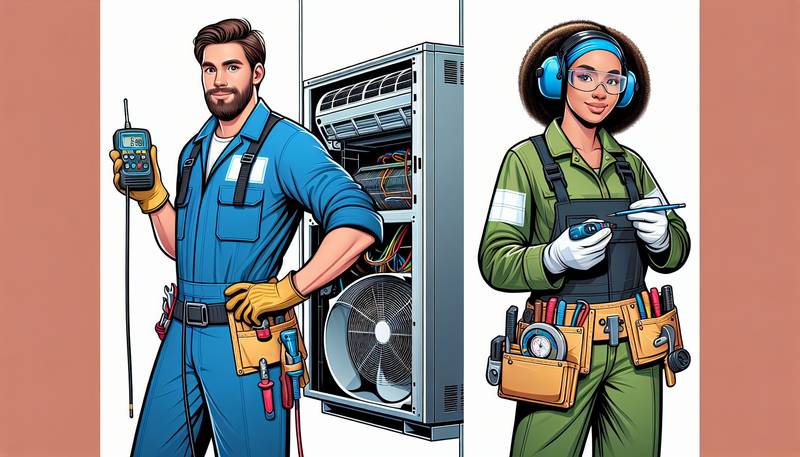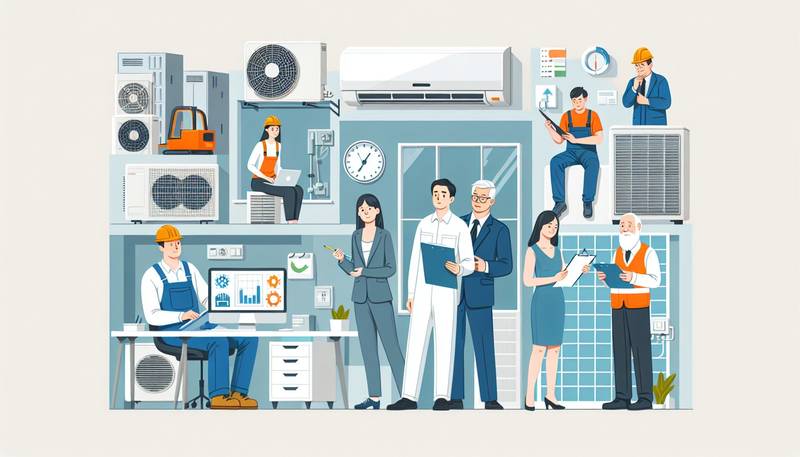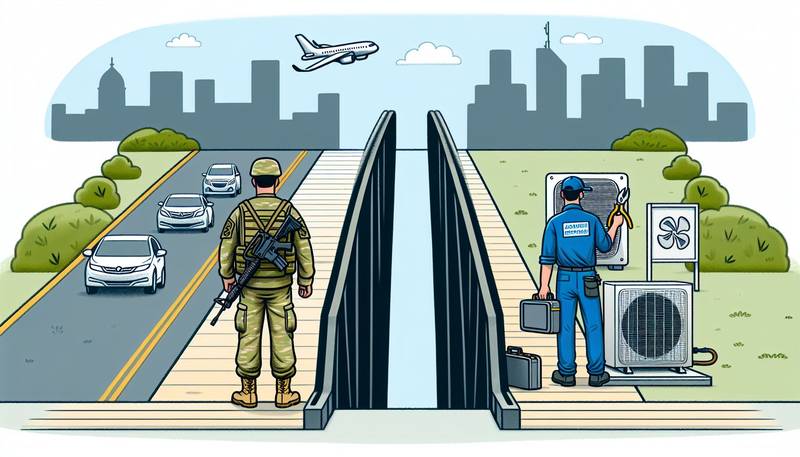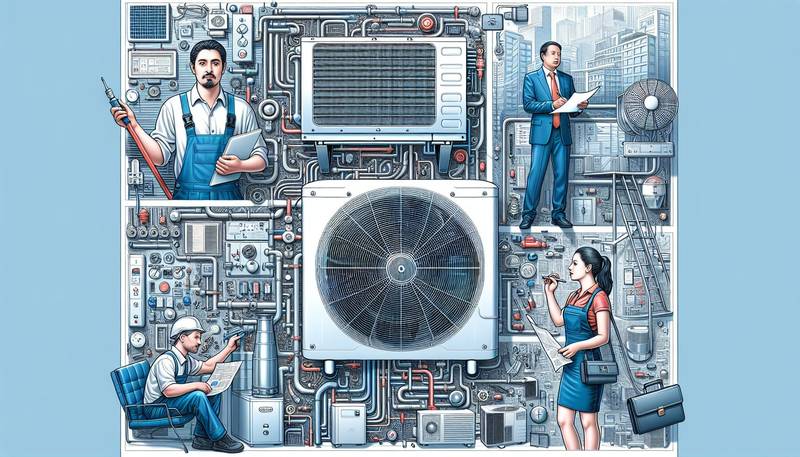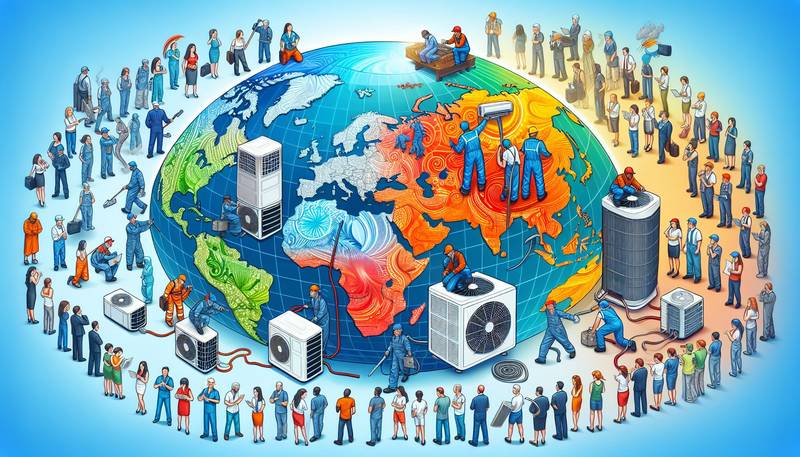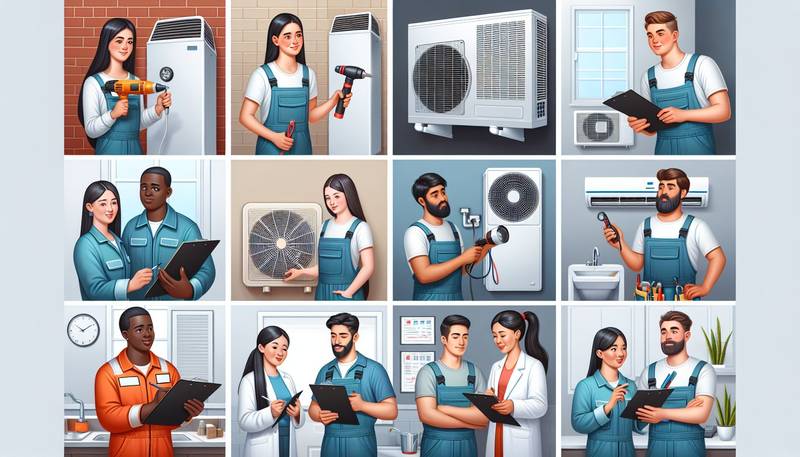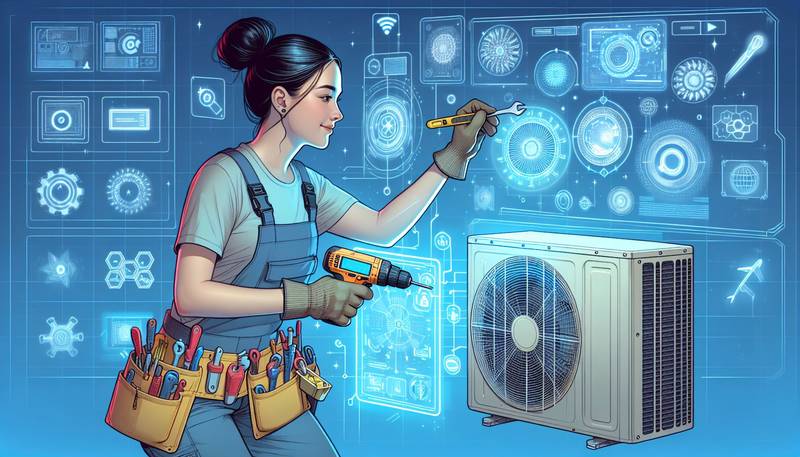Remote Control: The Rise of Smart Technology in Air Condition Jobs
Today, homeowners and businesses alike can control their air conditioning systems with the touch of a button, thanks to the rise of smart technology in this field.
The Benefits of Remote Control Systems
One of the key advantages of remote control systems for air conditioning units is the convenience they offer to users. Whether you're at home, at work, or on the go, you can easily adjust the temperature and settings of your air conditioning system using a smartphone or tablet. This level of control allows for greater comfort and energy efficiency, as users can optimize their system's performance based on their individual preferences and schedules.
Another benefit of remote control systems is the ability to monitor and track energy usage in real-time. By accessing data on their energy consumption, users can identify areas where they can reduce waste and save money on their utility bills. This level of insight into energy usage can also help promote sustainability and reduce the environmental impact of air conditioning systems.
Integration with Smart Home Systems
Remote control systems for air conditioning units are often designed to integrate seamlessly with smart home technologies, allowing users to create a more connected and intelligent living space. By syncing their air conditioning system with other smart devices such as thermostats, lighting, and security systems, homeowners can automate various aspects of their home environment and improve overall comfort and convenience.
Smart home integration also enables users to control their air conditioning system through voice commands, further enhancing the hands-free and user-friendly experience. By simply speaking a command to a smart speaker or virtual assistant, users can adjust the temperature, set schedules, and receive updates on their system's performance without having to lift a finger.
Enhanced Comfort and Efficiency
In addition to the convenience and connectivity that smart technology brings to air conditioning jobs, these systems also offer enhanced comfort and efficiency for users. Smart thermostats, for example, can learn users' preferences over time and automatically adjust the temperature to suit their comfort levels. This personalized approach to cooling can help create a more comfortable and tailored indoor environment for individuals and families.
Furthermore, remote control systems can help improve energy efficiency by allowing users to program schedules for their air conditioning system based on their daily routines. By setting temperatures to adjust automatically when they're away from home or asleep, users can reduce energy waste and lower their utility costs without sacrificing comfort. These energy-saving features are not only beneficial for the environment but also for the user's wallet in the long run.
Conclusion
The rise of smart technology in air conditioning jobs has transformed the way we interact with and control our cooling systems. From remote control capabilities to smart home integration, these advancements offer users greater convenience, connectivity, and control over their indoor environment. By leveraging these features, homeowners and businesses can enhance comfort, improve energy efficiency, and create a more sustainable living space. As smart technology continues to evolve, the future of air conditioning jobs looks brighter than ever.

